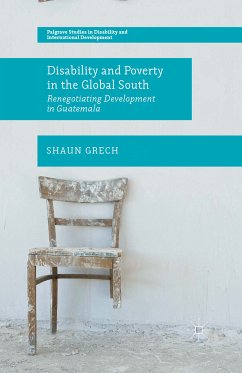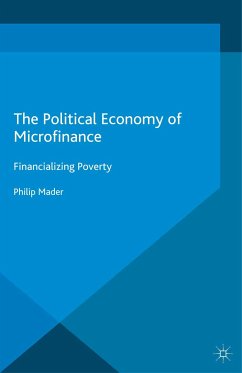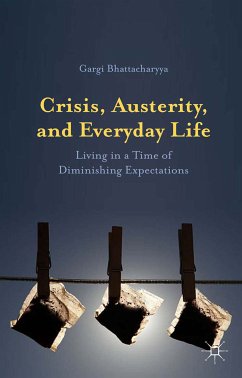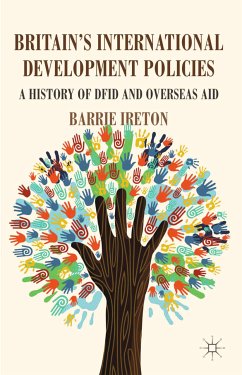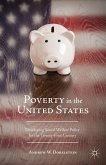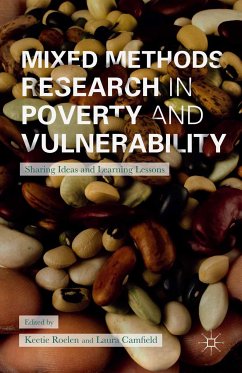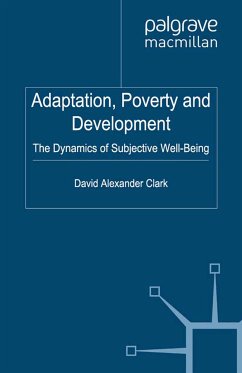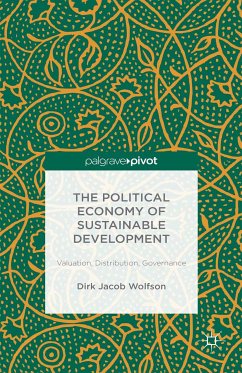Dieser Download kann aus rechtlichen Gründen nur mit Rechnungsadresse in A, B, BG, CY, CZ, D, DK, EW, E, FIN, F, GR, HR, H, IRL, I, LT, L, LR, M, NL, PL, P, R, S, SLO, SK ausgeliefert werden.
'In this paradigm-shifting text, Shaun Grech dislocates critical disability studies from its normative moorings in global North spaces and reconsiders how we might understand disability/poverty, activism, belonging, mutuality and interdependence through reference to the global South. This book demands scholars and activists alike to think again about the place of disability.' Professor Dan Goodley, University of Sheffield, UK
'Grech has written a very necessary book on disability and poverty in local and global contexts, identity, and belonging in the world. The book questions indeed, creates fissures in the usual discourses and theoretical underpinnings that frame issues of disability and power along the North and South. This groundbreaking work stems from Grech's deep knowledge of rural areas and his well-known and admirable work in Guatemala. A book that is both rigorously scholarly and deeply felt.' Professor Trudy Mercadal, FLACSO, Guatemala
'A truly engaged analysis of contextually embedded disability in a Southern context. It focuses on a country ravaged by brutal violence throughout the course of a civil war leading to genocide and disappearances, a brutality that continued with respect to land dispossession and expropriation in forms of 'primitive accumulation.' Disability takes on a particular meaning in this context. In this book, disability intersects with 'development', colonialism and poverty in a multi-varied analysis shifting the terrain of discourse concerning disability studies and development. This is truly ground-breaking work and an insightful read, foregrounding not only disabled individuals and their families, but also structuring forces at play.' Professor Peter Mayo, University of Malta
'This timely contribution moves beyond simplistic accounts of disability inclusive development to capture the everyday practices of disabled people's social transformation and their daily struggles against deeply entrenched rural poverty. This book challenges us to reflect upon development processes of the past andpresent; to critically locate their meaning for the future. For anyone who wants to understand the deep roots of the 'disability inclusive development' discourse and practice and its localised impacts, this thoughtful book by Grech is a must.' Dr Karen Soldatic, University of New South Wales, Australia

